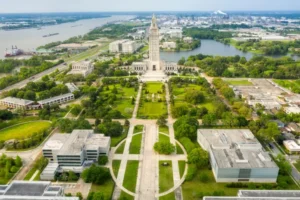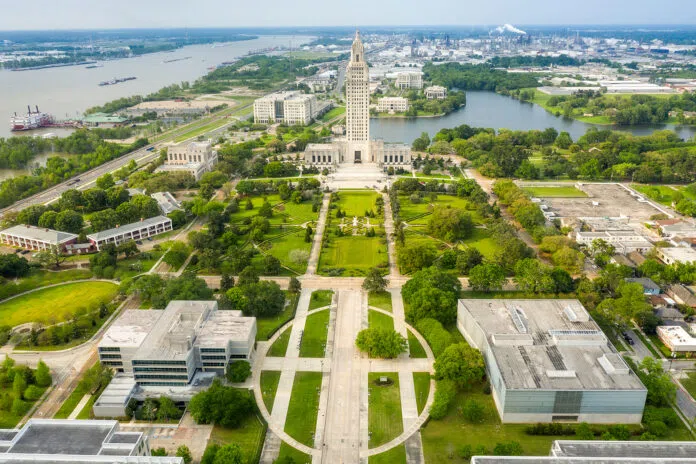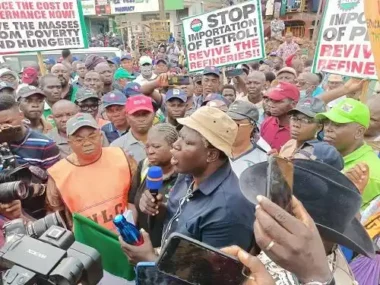
Legislature’s redistricting special sessions cost taxpayers nearly $1M

Louisiana lawmakers spent nearly $1 million on the two redistricting special sessions held to redraw the state’s political boundaries, WAFB-TV reports.
The first special session to tackle the map ran from Feb. 1 to Feb. 20. In that time, the bill for the House and Senate rang up at $786,997. Of that figure, the House had $511,300 in fees while the Senate was responsible for $275,697.
After the state House and Senate’s congressional map was vetoed by the governor and then overridden by the Legislature, a federal judge ordered lawmakers to redraw the map. Lawmakers went back to the drawing board June 15 with just five days to meet the judge’s deadline for a map with two majority-Black districts to better match changes in Louisiana’s population.
The second special session ended before the deadline but still cost $147,842.17. Read the full story from WAFB-TV.
Baton Rouge General has an agreement in place to purchase land in the Baton Rouge Health District that could be the future site of the long-sought Midway Connector, BRG spokesperson Katie Johnston confirmed today.
The deal has not yet closed, which would be only the first of many hurdles that would have to be cleared before the project could come to fruition.
Health District Executive Director Steven Ceulemans says the connector would improve mobility and traffic flow.
“Well over a decade of planning has gone into this,” he says.
Officials broke ground last month for Midway Boulevard, which will run from Picardy Avenue to the new Constantin Boulevard behind BRG and Our Lady of the Lake Children’s Hospital. The proposed connector would extend Midway south to Perkins Road.
The project would be an expensive and logistically difficult proposition involving crossing railroads and moving a power plant, East Baton Rouge Parish Transportation Director Fred Raiford says.
“It’s not that it can’t be done, but there’s a lot of ins and outs,” he says.
The owners of the property the connector would pass through had asked for the project to be removed from the parish street plan. They don’t support the Midway running through their property and believe a commercial development is a better use
says Bill Jeansonne with Saurage Rotenberg Commercial Real Estate.
But officials with BRG would make that decision if they close the sale. An item on Monday’s Planning Commission meeting agenda calls for the segment to be removed from the major street plan. Jeansonne says the owners will ask to defer the item, and Raiford says he supports keeping the project in the plan.
The pandemic has irrevocably altered the way Americans work. While changes began when lockdowns forced companies to implement remote and hybrid work schedules, they have continued well beyond the end of stay-at-home orders.
The Washington Post reports that in-person attendance at many offices is nearly nonexistent on Fridays. The story points to research from Kastle Systems, which has been monitoring office entry activity across 41,000 workplaces weekly. Kastle found that in June only 30% of the workforce actually went into the office on Fridays.
Allowing employees to work from home on Fridays, or even converting to a four-day workweek, is not something just startups are having to do to keep workers. Meanwhile, some behemoth employers are trying novel ways to entice their workers to show up on Fridays. For example, KPMG promises “no-camera Fridays” and rewards its employees by allowing them to clock out at 3 p.m. during the summer months. Read the article.





